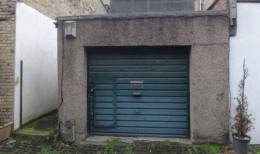
The conversation around the landlord-tenant relationship has intensified. There’s a spotlight on how landlords are failing to meet their responsibilities. Ensuring a property is habitable and a comfortable and safe place to live is a fundamental duty of a landlord. This article delves into the common issues tenants face due to poor property maintenance and how landlords can address these concerns through thoughtful renovation.
Common Structural and Home Issues
One of the most significant concerns for tenants is the rented property’s structural integrity and overall condition. Common issues range from leaky roofs and mould growth to outdated electrical systems and inefficient heating. These problems not only pose health risks but also affect the quality of life.
Landlords need to recognise the importance of regular maintenance and timely renovations. That includes assessing the property’s foundation and ensuring the integrity of walls, roofs, and essential systems like plumbing and electricity.
In addition to interior issues, outdoor spaces often need to be noticed. A well-maintained garden or yard can significantly enhance the living experience. However, issues like uneven terrain or poorly constructed outdoor areas can pose safety risks and diminish the property’s appeal.
That’s where structural solutions like a precast retaining wall can be invaluable. These walls stabilise sloped areas and enhance the aesthetic appeal of outdoor spaces, making them safer and more enjoyable for tenants.
The Cost of Renovation and Its Implications
Undoubtedly, renovation entails costs, and for landlords, this can be a deterrent. Still, investing in property improvements is not just a legal obligation. It can also be financially beneficial in the long run. Quality renovations can increase property value, reduce the need for frequent repairs, and attract and retain tenants willing to pay more for a well-maintained home.
The cost of renovation varies based on the extent of the work needed. For instance, interior renovations like kitchen or bathroom updates can have immediate visual and functional benefits. Meanwhile, structural improvements, such as installing precast retaining walls in the garden, although potentially costlier, can drastically improve the property’s safety and aesthetic, making it a more enticing prospect for current and potential tenants.
It’s also worth noting that failing to maintain a property can lead to more significant expenses. Neglect can exacerbate issues, leading to more extensive and expensive repairs.
Landlords who neglect their properties may face legal and financial repercussions if tenants decide to take legal action due to unlivable conditions. Do not hesitate to seek professional legal advice if you believe your landlord is at fault. The First Tier Tribunal (property chamber), is here to support tenants seeking damages.
Enhancing Tenant Safety and Comfort with Smart Renovations
Ensuring tenant safety and comfort is paramount in property management, and smart renovations are key to achieving this. By prioritising areas that directly impact tenant well-being, landlords can significantly improve the living conditions of their rental properties.
Starting with the basics, addressing any structural issues is crucial. This includes checking for and repairing roof, foundation, and wall damage, ensuring the property is structurally sound and weatherproof. Upgrading electrical systems to meet modern safety standards and installing efficient heating and cooling systems can massively enhance the comfort and safety of the living space.
Next, focus on improving areas that enhance daily living. Renovating kitchens and bathrooms with modern, functional fixtures improves the usability of these spaces and adds to the overall aesthetic appeal. Replacing old, worn-out flooring with durable and easy-to-clean materials can also make a difference in appearance and safety.
Pay attention to the importance of outdoor spaces. Ensuring that any decking or stairs are sturdy and well-maintained – and considering installing features like precast retaining walls – can enhance both the safety and visual appeal of these areas. Well-maintained outdoor spaces provide tenants with a pleasant, relaxing area and contribute to the property’s curb appeal.
Enhancing Tenant Satisfaction and Property Value
Enhancing tenant satisfaction and property value through thoughtful improvements is a strategic move for landlords. By investing in quality renovations, landlords not only comply with legal standards but also significantly boost the appeal of their properties. Happy, satisfied tenants are inclined to treat the property with more respect and are often willing to stay longer, which translates to lower turnover rates and consistent rental income for landlords.
Properties that boast well-considered features not only enhance safety but also add to the aesthetic charm of the space. Such enhancements make the property more appealing to potential renters, often allowing landlords to set higher rental rates competitively.
Investing in energy-efficient upgrades, modern amenities, and regular maintenance can substantially increase the property’s market value. These improvements can lead to significant savings in utility costs and long-term property upkeep over time.
A landlord-tenant relationship is a two-way street built on mutual respect and responsibility. Landlords must provide a safe and comfortable living environment. While renovations and repairs can be costly, they are necessary for property management.
Ref: 3597.31614 / 18336
Image credit: Unsplash




 POSTED BY
POSTED BY 

